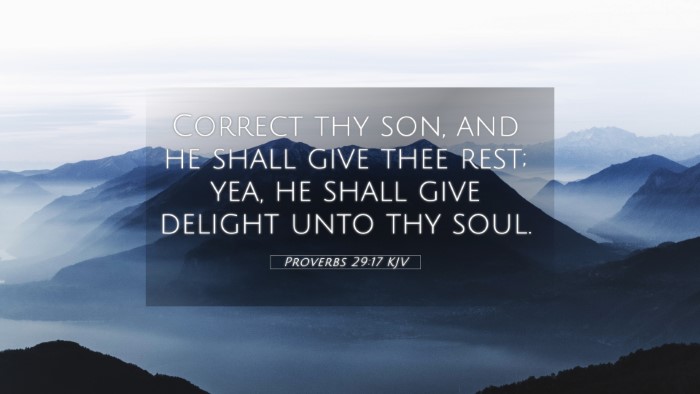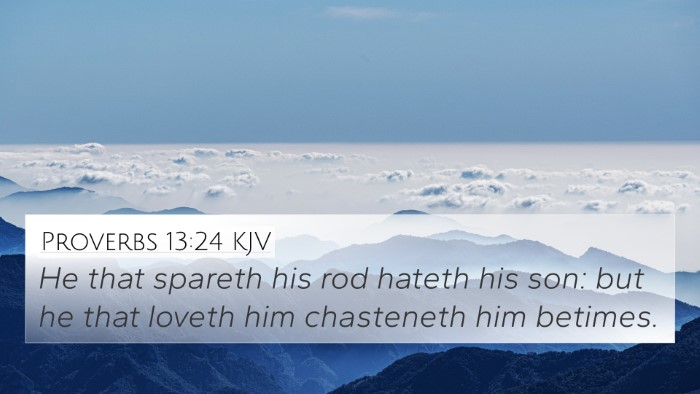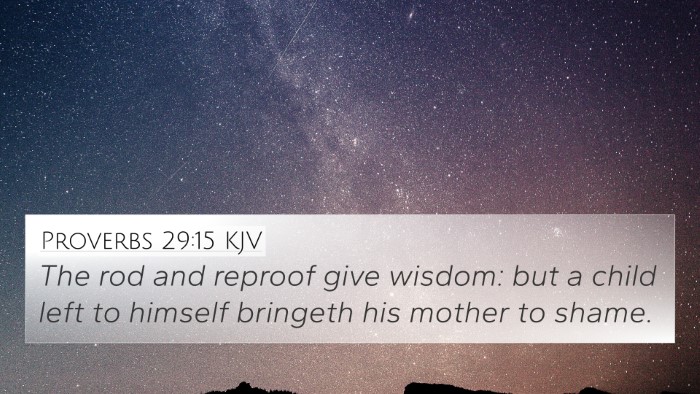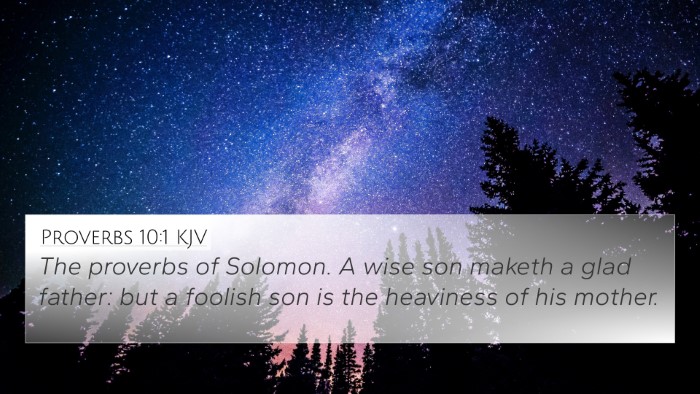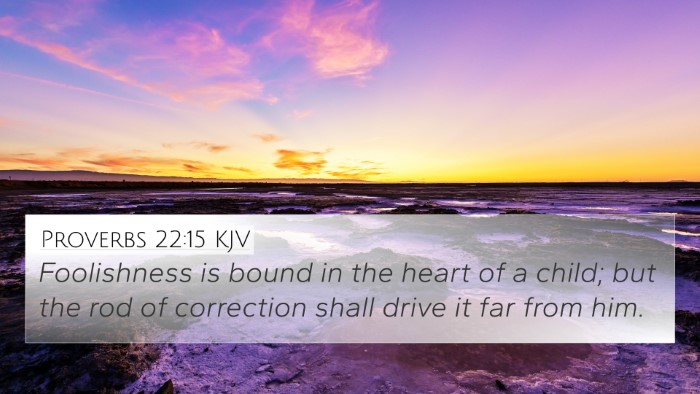Proverbs 29:17 - Meaning and Interpretation
Bible Verse: Proverbs 29:17 - "Correct your son, and he will give you rest; yes, he will give delight to your soul."
This scripture emphasizes the importance of parental discipline and the benefits that come from raising children with guidance and correction. It assures that proper training yields not only discipline but also joy and peace for the parents. Combined insights from various commentaries offer a deeper understanding of this verse.
Insights from Public Domain Commentaries
-
Matthew Henry:
Matthew Henry highlights the inevitability of correction in parenting. He emphasizes that correcting a child is not only a duty but also an act that leads to future peace. Through correction, parents mold their children’s character, steering them away from folly and guiding them towards wisdom.
-
Albert Barnes:
Albert Barnes explains that the verse illustrates the dual outcome of proper correction. Not only will children become disciplined, but they will also bring joy to their parents. This joy comes from the realization that their offspring have been guided to make wise choices in life, ultimately pleasing to both family and community.
-
Adam Clarke:
Adam Clarke provides insights into the implications of correction. He states that when parents correct their children with love and wisdom, they foster a relationship built on respect and understanding. Clarke warns against laxity in discipline, as it can lead to greater distress in family life. Instead, loving correction will lead to joyful relationships.
Key Themes and Concepts
The core message in Proverbs 29:17 revolves around key themes such as:
- Parental Responsibility: The responsibility of parents to raise their children with correction and guidance.
- Rewards of Discipline: The positive outcomes that come from effective parenting, including peace and joy.
- Long-Term Vision: Understanding that short-term discomfort from correction leads to long-term benefits for both parents and children.
Bible Verse Cross References
This verse connects with several other biblical passages that emphasize discipline and guidance:
- Proverbs 22:6 - "Train up a child in the way he should go..."
- Hebrews 12:11 - "For the moment all discipline seems painful rather than pleasant..."
- Ephesians 6:4 - "Fathers, do not provoke your children to anger, but bring them up in the discipline and instruction of the Lord."
- Proverbs 13:24 - "Whoever spares the rod hates his son, but he who loves him is diligent to discipline him."
- Proverbs 3:12 - "For the Lord reproves him whom he loves, as a father the son in whom he delights."
- Colossians 3:21 - "Fathers, do not provoke your children, lest they become discouraged."
- Proverbs 1:8-9 - "Hear, my son, your father’s instruction, and forsake not your mother’s teaching..."
Thematic Connections
In exploring the connections between biblical verses, we find that Proverbs 29:17 embodies key truths that resonate throughout Scripture. By examining other verses, one can uncover:
- Connections between Old and New Testament teachings.
- Comparative analyses of parental instruction methodologies.
- Similarities between wisdom literature and apostolic letters.
Tools for Bible Cross-Referencing
For those interested in diving deeper into the connections between scripture:
- Utilize a Bible concordance to find related verses.
- Employ a Bible cross-reference guide to explore thematic links.
- Use a cross-reference Bible study to enrich your understanding of interrelated texts.
Conclusion
Proverbs 29:17 serves as a poignant reminder of the divine framework of parenting, advocating for loving correction as a source of joy for both children and parents. In linking this verse with others, one can amplify comprehension through a holistic view of biblical teachings on discipline, love, and guidance, ultimately nurturing an environment conducive to growth and character development.
Incorporating cross-references and understanding their relationships provides a broader view of biblical wisdom, assisting in application and study.

